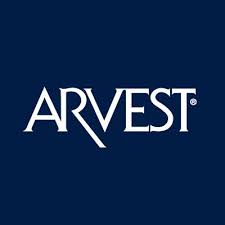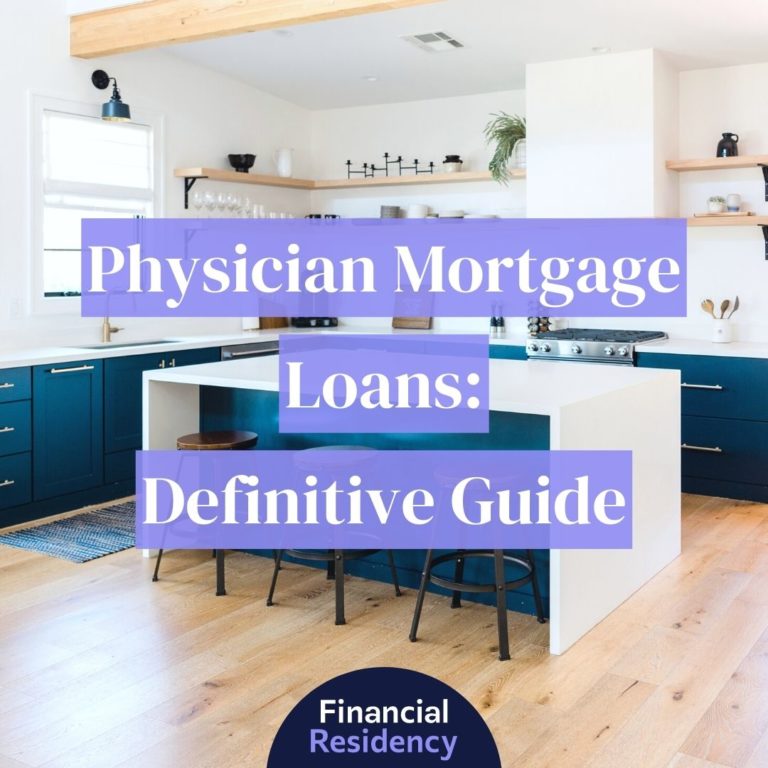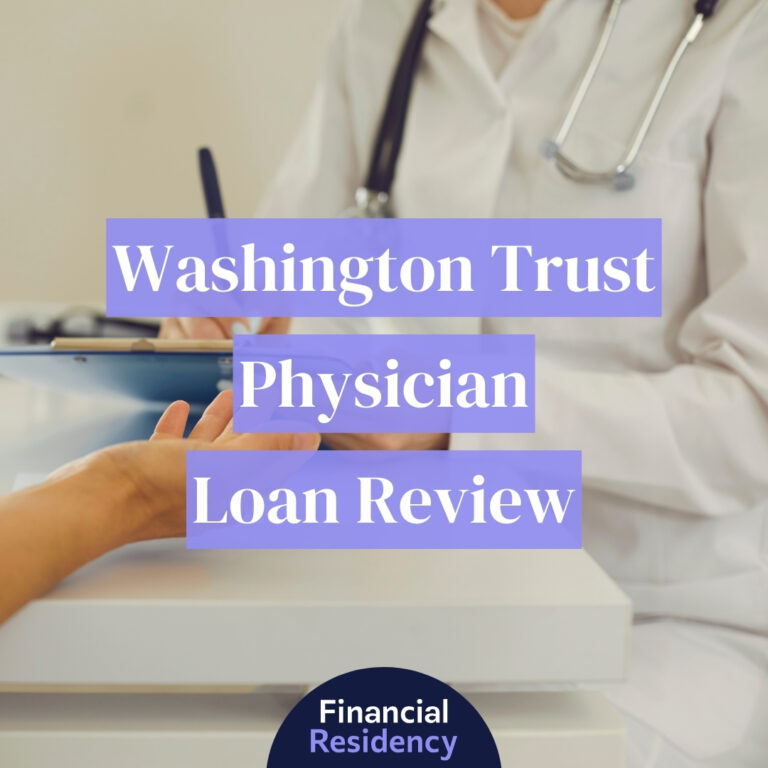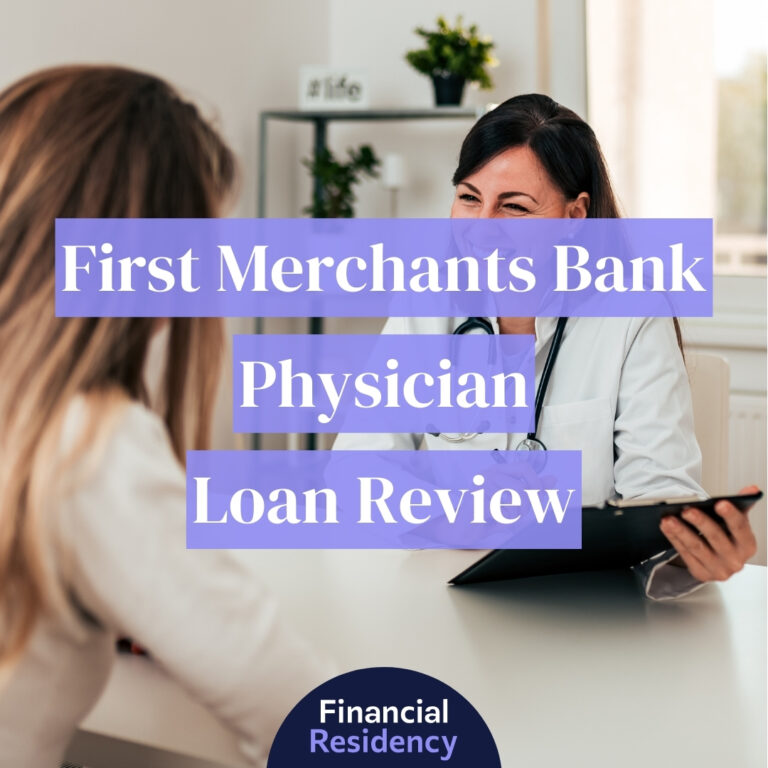Arvest Bank offers great physician loans for doctors within their region, including the option to roll your closing costs into the loan. In this Arvest Bank physician loan review, we’ll determine if Arvest Bank is worth it or if you should look elsewhere.
About Arvest Bank
Arvest Bank began in 1961 in Northwest Arkansas and has since grown to serve not only Arkansas but also Kansas, Missouri, and Oklahoma. They have over 200 locations, taking them from a local to a regional bank with many banking services.
- BBB Score: A+
- CEO: Kevin Sabin
- Parent company: Arvest Bank Group, Inc
- Phone number: (866) 952-9523
- Services offered: Personal and business banking, home loans, investments and trusts
Arvest Bank Physician Loan Fast Facts
Here are some quick facts about the Arvest Bank physician loan program.
- Financing options: Up to 103% LTV (100% for sales price and 3% for taxes, insurance and closing costs)
- Physician loan products: Various options, including fixed and adjustable-rate loans
- Maximum loan amount: Varies by the borrower
- Qualifying degrees: Doctors in residency and beyond
- Private mortgage insurance: Not required
Arvest Bank Physician Loan Qualifications
Arvest Bank’s physician loan qualifications are:
- Down Payment: Some borrowers qualify for no money down
- Eligible Degree: Medical doctors
- Student loan deferment: Offers flexible options
How to Apply
Knowing how to apply for an Arvest Bank physician loan is the key to a successful process. Here’s how to apply:
Talk to a Loan Officer for Pre-Qualification
To apply for an Arvest Bank physician loan, you must talk to a loan officer. This is a great way to see what you can afford and what terms Arvest Bank offers.
You don’t have to provide any documentation at this point. Instead, you have a quick conversation with the loan officer about your income, assets, and current debts, especially your student loans.
With this information, the loan officer can pre-qualify you for a loan. This allows you to compare it to what other banks offer to see which loan is best.
Gather Your Documents
If you choose Arvest for your physician loan, they have flexible underwriting guidelines but, like most lenders, will require the following documents:
- Paystubs and W-2s
- Employment contract
- Proof of current employment if already employed
- Two months of bank statements to prove you have the necessary funds for a down payment and closing costs
- Government-issued ID
Get Pre-Approved
When you decide to move forward, you should get pre-approved. This requires you to complete a loan application and provide the lender with the documentation you gathered.
An underwriter will review your documentation, and when you’re pre-approved, the lender will provide you with a letter stating the amount you are pre-approved for and at what rates and terms. This can help you when you look at homes and are ready to place an offer.
Lock Rate and Clear Conditions
While you look for a home, work on clearing any conditions the underwriter wants, such as providing updated paystubs or proving you paid off certain debts.
You’ll also use this time to lock your interest rate so you can close the loan. This step takes the longest because you have a lot going on between finding the right home, clearing conditions, and signing contracts.
Close the Arvest Bank Physician Mortgage
After you find a home and sign a purchase contract, the underwriter will order an appraisal and title work to ensure the home is worth enough and the seller has the right to sell it.
When the underwriter clears all the conditions, you become a homeowner of your dream home with a physician mortgage to pay.
Discover The Best Lenders Answer just a few questions about your career, where you're buying, and how much you want to borrow. Our service will then show you the exact programs you're eligible for from vetted physician loan specialists who will guide you through every step of the process – obligation-free!
Arvest Bank Physician Mortgage Alternatives
Arvest Bank is a great option if you live in one of the states where they operate. If not, here are some alternatives.
1. Bank of America
Bank of America allows physicians to borrow up to $2 million with down payments as low as 3% and up to 15%. The loans are available as fixed or adjustable-rate and for doctors with the following degrees:
- MD
- DMD
- DO
- DDS
- OD
- DPM
However, there’s a catch. You must have a Bank of America account to apply for a physician loan.
2. TD Bank
TD Bank has lower loan limits for physician loans, allowing loans of up to $2 million and only 10.01% down. However, if you borrow only $750,000, TD Bank doesn’t require a down payment, and the program is open to doctors with the following degrees:
- MD
- DDS
- DO
- DPM
- DMD
Like many banks, you can apply for a TD Bank physician loan with an executed employment contract.
3. Fifth Third Bank
Fifth Third Bank has a robust physician mortgage program for residents, fellows, and new doctors. They allow loans up to $1 million with no money down, and like most banks, don’t charge PMI.
Established doctors can borrow up to $2 million, and any doctor can choose a fixed or adjustable-rate loan. The program is open to the following degrees:
- MD
- DO
- DPM
- DMD
- DVM
- DDS
- OD
4. BMO Bank
BMO Bank allows a 5% down payment on loans up to $1.5 million and 10% down on loans up to $2 million. They open their program to residents, fellows, and new doctors and offer fixed and adjustable-rate loans. The program is open to doctors with the following degrees:
- MD
- DDS
- DO
- DMD
Pros and Cons
There are pros and cons of considering Arvest Bank for your physician loan needs. Here’s what to consider.
Pros:
- Offers no down payment options
- May roll certain costs into your loan for a 103% LTV
- Allows loans for doctors in residency
Cons:
- Only operates in four states
- Not transparent about their loan requirements
Frequently Asked Questions
Do doctors get loans easily?
Doctors often have a tougher time securing conventional mortgage loans because of their high debt-to-income ratio, thanks to high student loans.
However, physician mortgage loans often exclude these payments from your DTI to allow doctors to afford much higher loan amounts early in their careers.
Do doctors get lower mortgage interest rates?
Many people mistakenly believe doctors get better interest rates, but they often pay higher rates than other borrowers.
Lenders base interest rates on the riskiness of a loan, and with doctors borrowing much more money with lower down payments, they are about as risky as they come. The rates are typically competitive but not usually lower than conventional rates.
How much money can I borrow with an Arvest Bank physician loan?
Arvest Bank allows LTVs of up to 103% if the 3% covers closing costs, taxes, or insurance. How much you can borrow depends on your qualifying factors and how much you can afford.
What credit score do you need for an Arvest Bank physician loan?
Arvest Bank, like most lenders, wants great credit scores for physician loans since some doctors get by without any down payment and yet borrow loans of $750,000 or more. The better your credit score is, the easier it is to qualify for an Arvest Bank loan.





